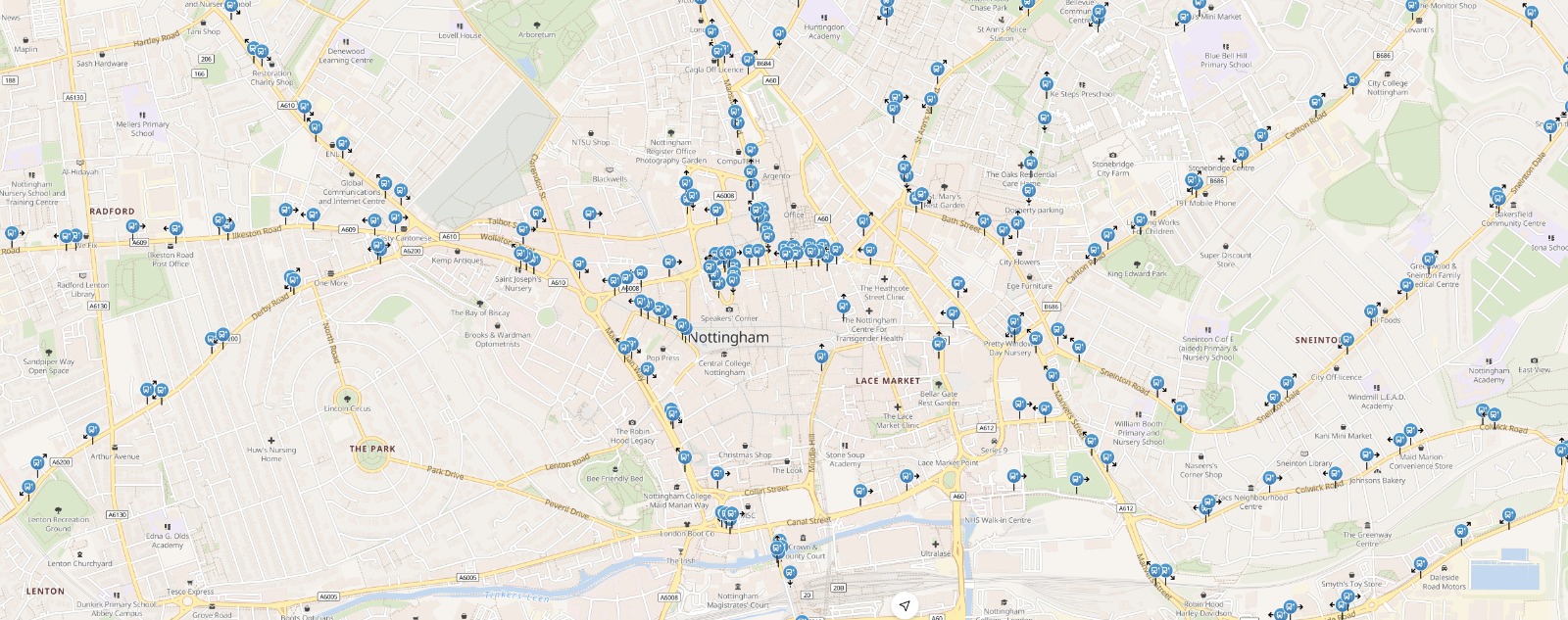A new year, a new NaPTAN!
Passenger Technology Group will start processing data from the new NaPTAN service for Stops data from the 11th January 2022.
11th Jan 2022


NaPTAN (the National Public Transport Access Node) is Great Britain’s dataset of every place a passenger can join or leave public transport, including bus, rail, tram, metro, underground, air and ferry services. The dataset contains about 500,000 records, the vast majority of which are bus stops.
Why is the service changing?
The NaPTAN service was created in 2002 and had remained largely unchanged. In 2018, Passenger launched Bus Stop Checker, a service that analysed NaPTAN data and uncovered some discrepancies and in 2020 the Department for Transport (DfT) put bringing NaPTAN up to date on its agenda.
Both Passenger’s mission – to empower more users to choose public transport – and the objectives of the National Bus Strategy require highly accurate and dependable data to continue building trust with users. Although small inaccuracies in location data might not have much impact on users at the moment, in a future that may involve automated or driverless transport options, precise accuracy will be an important factor.
NaPTAN’s new service has now been developed and the old service will be switched off on the 14th January 2022.
What’s changing?
1) The new NaPTAN service only outputs Stops data
The previous service contained 17 datasets. DfT research concluded that Stops data was the most used dataset and it was unnecessary to develop the others into the new service. Although Passenger only uses Stops data, this may impact other providers who rely on it.
2) Stops data no longer always provides a latitude and longitude.
Although Stops data has easting and northing, the NaPTAN service no longer provides longitude or latitude when not provided by the local authority responsible. Calculations now need to be done by the data consumer themselves, with each consumer potentially converting location data using different methods. Data consumers that rely on data from each other could uncover issues if locations differ.
Passenger apps and websites
Passenger’s dataset import process will use the new NaPTAN service for Stops data and will calculate location data no longer provided. Passenger automated a check of every stop in the new dataset to confirm locations are accurate within a couple of metres for a seamless switchover in the background of websites and apps that will go unnoticed by users.
Preparing for change
Before the DfT started reviewing the NaPTAN service, Passenger had already begun working on internal systems, improving the way we consume and process NaPTAN data for current and future features. By the start of the NaPTAN redevelopment, we had automated nightly downloads and processing of the NaPTAN data to allow us to scale and meet the increasing demand for our products and services.
As a provider of public transport passenger information to almost 100 operator companies and a major consumer of NaPTAN data, we were invited to advise on data consumer requirements in January of 2021. Passenger were given access to the private beta in September. This was a form-based website where Stops data could be manually downloaded for testing with our systems, but like many other NaPTAN data consumers, Passenger required a persistent URL to automate downloads. In November 2021, the private beta was made publicly available, and it was announced that the old NaPTAN service for consumers would be switched off at the end of the year.
By December, Passenger had completed its system improvements – including calculations for the missing location data – and focused on ensuring that migration was implemented smoothly before the old NaPTAN service was switched off.
Following the DfT’s “A Year in NaPTAN” review webinar, an engineering meeting with the NaPTAN redevelopment team further discussed data consumer requirements and we were pleased to be shown a demo for a persistent URL for nightly downloads.
Although ready for the changeover as initially scheduled, we appreciated the NaPTAN team’s decision to move to January 2022 to allow further testing and so that the switchover took place after the festive holidays.
Looking to the future
Open data must be reliable, high quality, and consistent; and the NaPTAN redevelopment team has made its data more reliable and improved the quality of the service. However, by removing the location data it previously provided, the experience of using this data is arguably not consistent with the service before and data consumers had to work quickly to fill in the gaps in the dataset before the old service switched off.
We understand that the DfT does not want to be solely responsible for deciding how this data is calculated, so we will be working alongside them over the coming months to find ways to provide consistent and accurate location data for all NaPTAN data consumers.
As the NaPTAN development team switches their focus to improving the tools for local authorities to provide and manage the source data, Passenger’s customer experience platform will automatically benefit from any improvements in data quality and as such, we look forward to seeing improvements to other datasets in the future.
Tags
Share this article

Newsletter
We care about protecting your data. Here’s our Privacy Policy.
Related news

Start your journey with Passenger
If you want to learn more, request a demo or talk to someone who can help you take the next step forwards, just drop us a line.